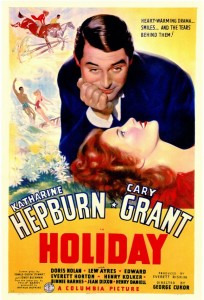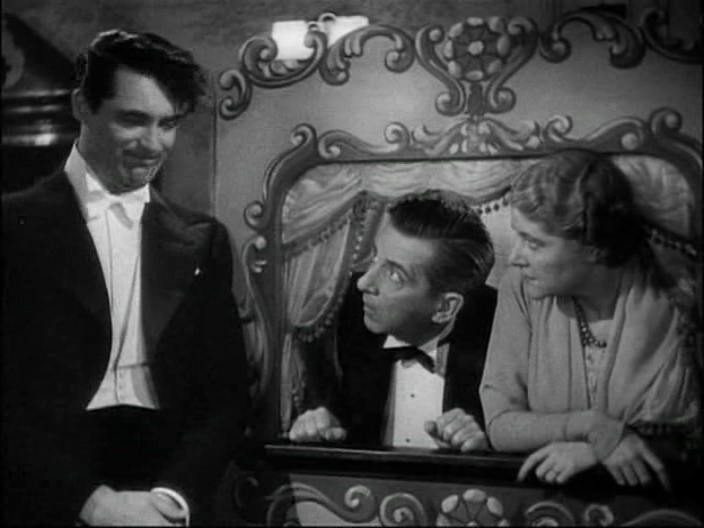Holiday (1938)
“I’ve got all the faith in the world in Johnny.”
|
Synopsis: |
|
Genres, Themes, Actors, and Directors:
Response to Peary’s Review: While Holiday can certainly be enjoyed on a surface level as simply a smart romantic comedy, it possesses nuanced social and psychodynamic subtexts. As noted in Stephanie Zacharek’s touching homage-review (she considers it a personal favorite), “a mantle of sadness hangs over this most stylish of comedies”, which in its “ruthlessness” not only “makes a case for building a life in which you’re surrounded by people you love” but is “also unflinching about steeling yourself against people who can only hurt you, no matter who they are”. With that said, as DVD Savant points out, the play/screenplay, for better or for worse, “pussyfoots around its central issue without ever really addressing it”, given that we never really learn “what the blazes [Grant’s character is] babbling about, and how… a kid who supported himself from age ten and rose to become a Wall Street genius fit[s] into [the nebulous] philosophy” of “big, exciting new ideas coming into the world” (will he join the war in Spain?). Regardless, we’re clearly meant to see that nonconformist Grant and zany Hepburn (who, in Zacharek’s words, “is not just stifled by her upper-crust lifestyle but almost destroyed by it”) are a couple simply meant to be — and we take immense pleasure in watching how they will finally come to this realization themselves. Redeeming Qualities and Moments:
Must See? Categories
Links: |





One thought on “Holiday (1938)”
Not must-see.
As with the 1940 film of Barry’s ‘The Philadelphia Story’ – this (to me, anyway) is a big ‘Who cares?’ The love problems of the rich could not interest me less – nor do they offer much (at least here) by way of entertainment.
The plot could not be thinner. It’s true – we know *very* early on that Hepburn and Grant are the ones best suited for each other (at least they’re not snobs, even though they still enjoy swimming in money: after all, Grant’s Johnny wouldn’t be able to just take off on an extended holiday if he didn’t have lots of cash to support him while he wasn’t working) – yet, we still have to sit through about 90 minutes of what we already know.
The father and the other sister are more or less horrible bores (it passeth understanding what Grant saw in her). The brother barely registers since he’s nothing but a hopeless alcoholic. Horton and Dixon are stand-ins for those in the audience (like myself) who find the proceedings nothing but dull.
The ‘humor’ is genteel, it leans toward being forced – and it isn’t funny.